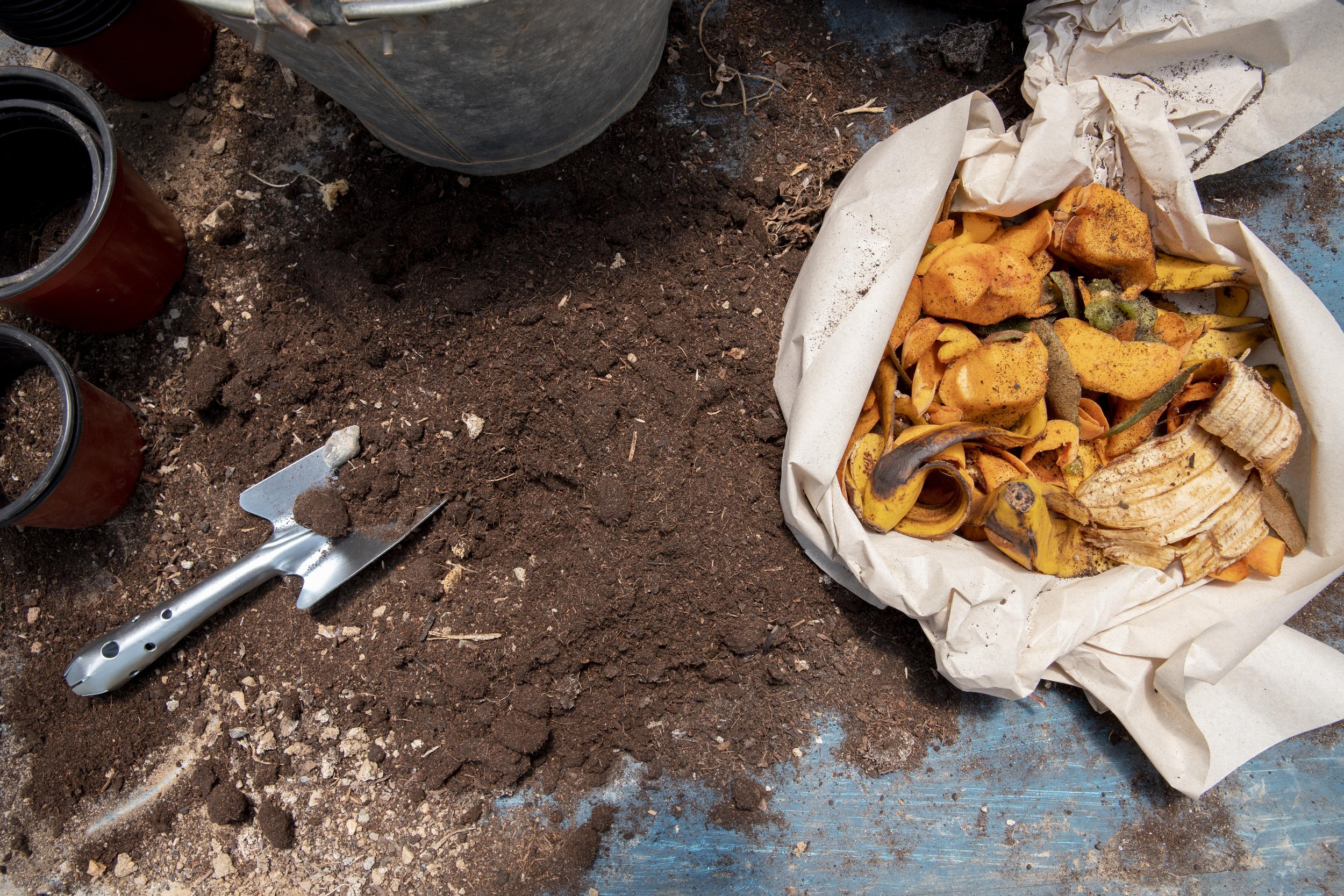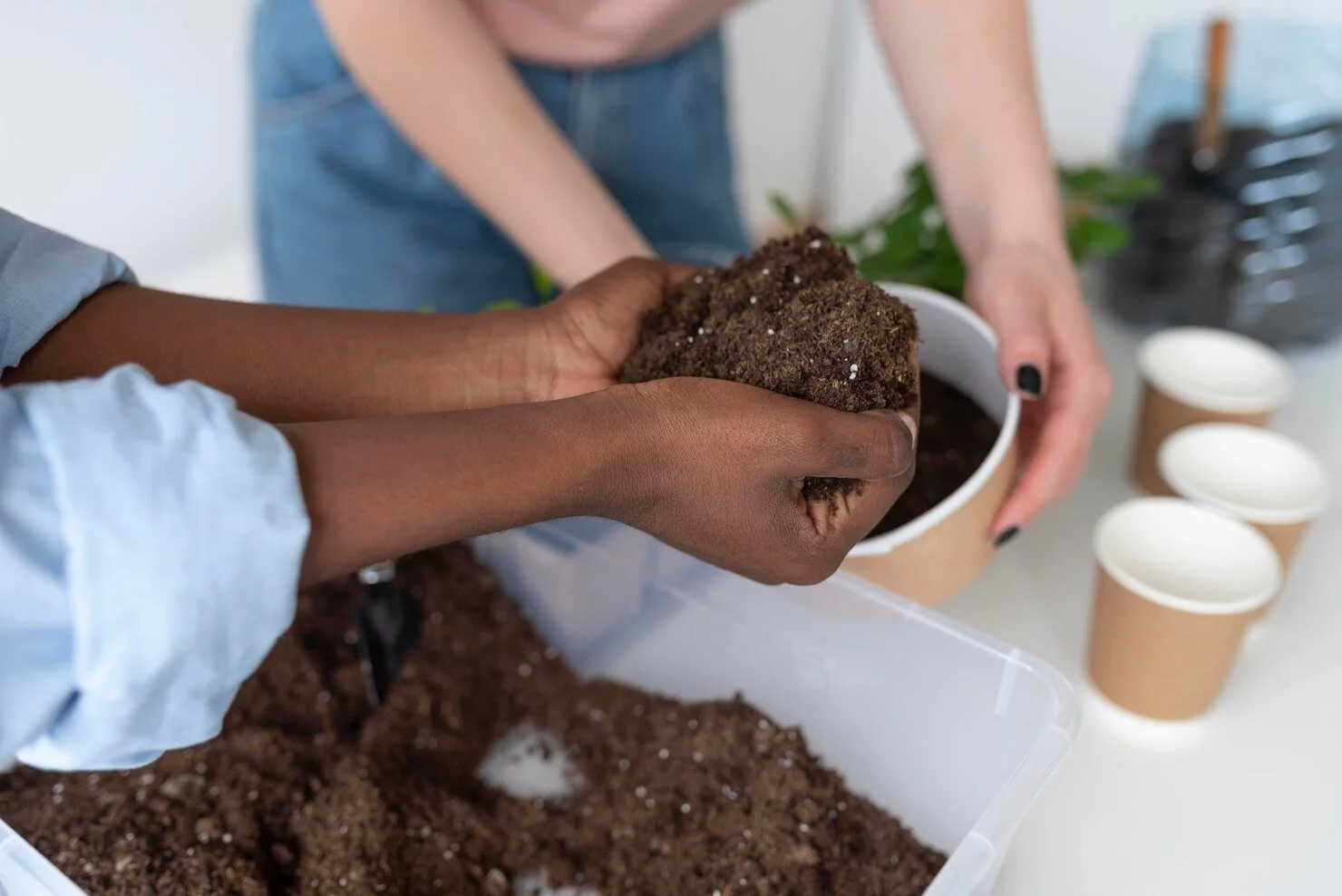
How to Use Your 2-Gallon Portion of Finished Compost
Thank you for being a part of The Compost Exchange! As a token of our appreciation, we're excited to provide you with nutrient-rich, finished compost. You can place an order for 2-gallon portions through your customer portal. This compost has been carefully sifted through a 1/5 inch screen, making it perfect for various gardening and landscaping uses. Here’s how you can make the most of it.
What is Compost?
Compost is a nutrient-rich organic material that results from the controlled decomposition of organic matter, such as food scraps, yard waste, and other biodegradable materials. This process, often referred to as composting, involves microorganisms breaking down the organic material into a dark, crumbly substance similar to soil, known as humus.
Compost is often used to enrich soil, helping plants grow by providing essential nutrients, improving soil structure, and enhancing moisture retention. It's a natural way to recycle organic waste, reducing landfill use and supporting sustainable gardening and farming practices.
1. Soil Amendment for Garden Beds
Preparation: Before planting, mix the finished compost into your garden beds to enrich the soil.
Application: Spread a layer of compost evenly over the surface of the soil. Then, work it into the top 4-6 inches of soil using a rake or garden fork before planting.
Benefits: This will improve soil structure, increase water retention, and provide essential nutrients to your plants, helping them grow healthier and more robust.
2. Top Dressing for Potted Plants
Preparation: Your compost can also be used as a top dressing for potted plants to give them a nutrient boost.
Application: Gently spread a thin layer of compost on the surface of the soil in your pots. Be careful not to cover the plant stems.
Watering: After applying the compost, water the plants as usual to help the nutrients penetrate the soil.
Benefits: This will gradually release nutrients into the soil, enhancing plant growth without the risk of over-fertilization.
3. Lawn Enrichment
Preparation: You can use your compost to enrich small patches of your lawn or to treat areas that need extra care.
Application: Lightly sprinkle the compost over the lawn, aiming for a thin, even layer.
Watering: Water the lawn after application to help the compost settle into the soil.
Benefits: This will help improve soil health, promote grass growth, and reduce thatch buildup over time.
4. Mulch for Flower Beds
Preparation: Compost can serve as a nutrient-rich mulch for flower beds, helping to retain moisture and suppress weeds.
Application: Spread a layer of compost around your flowers, being careful not to pile it directly against the stems.
Benefits: The compost will slowly break down, feeding the plants and improving the soil structure over time.
5. Compost Tea
Preparation: You can use the finished compost to make a nutrient-rich compost tea, which is great for watering plants and improving soil microbial life.
Recipe: Mix 1 part compost with 5 parts water in a bucket. Stir the mixture and let it steep for 24-48 hours.
Application: Strain the liquid and use it to water your garden or potted plants.
Benefits: Compost tea provides a quick nutrient boost and helps improve the health of your plants.
Additional Tips
Storage: If you don’t use the compost right away, store it in a cool, dry place. Keep it covered to prevent it from drying out or becoming waterlogged.
Usage: Remember, compost is a powerful soil amendment, so a little goes a long way! Use it sparingly and avoid over-applying.

